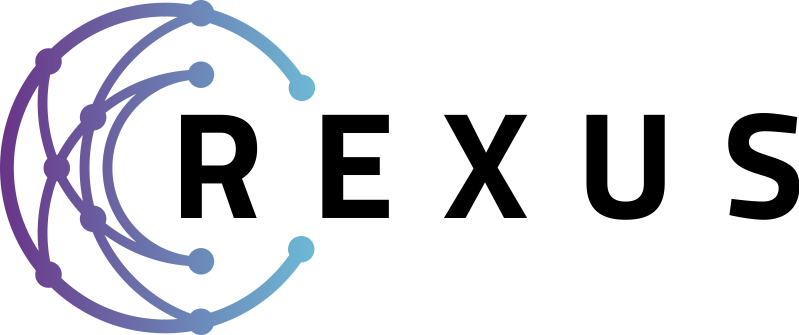
Work Packages
WP1: Project Management
Effectively managing all aspects of an impactful project
The objective of WP1 is to manage the project and the consortium, planning and undertaking all necessary activities for the project’s effective coordination, including the administrative and financial management and the technical management and quality assurance.
WP2: Learning and Action Alliances
Building and empowering effective local Nexus Stakeholder Alliances in Pilot areas
WP2 will set up the Learning & Action Alliance (LAA) communities and lay the foundations for fruitful collaboration with all relevant stakeholders. This will provide the container for stakeholder collaboration throughout the project lifetime and beyond on issues pertaining to policy development, implementation and strategic decision making. WP2 will also analyse the adequacy of pilots’ governance structure to manage nexus feedbacks.
WP2 outcomes:
An engaged and inclusive stakeholder community, ready to learn & grow into a new paradigm of managing resources in their territory.
Transferable lessons for engagement tailored to Nexus environments.
WP3: REXUS observatory
Bringing together a treasure chest of Nexus data
WP3 will develop the REXUS observatory, bringing together all necessary data for Nexus analyses, also accessible through visualisation tools. This includes tools and methodologies to generate and harmonize the required data. Data refer to both in-situ and remote sensing biogeophysical data and indicator products, as well as socio-economic indicators relating to Nexus and in support of SDGs.
WP3 outcomes:
A treasure chest of data and information, along with tools to generate that data for the REXUS Pilots and to be used for further analysis in Work Packages 4-7.
WP4: Advancing NEXUS Thinking
Developing new tools, centered around Systems Dynamic Modelling, for integrated, climate-resilient Nexus analysis
The objective of WP4 is to develop the Dynamic Systems modelling tools to jointly analyse the flows and stocks relating to water, energy, food and climate systems. This work will advance the integration of sectoral models and resource accounting, as well as help analyse transformation from resource to service. It will also provide evidence base and insights on how Nexus can effectively contribute to sustainable development.
WP4 outcomes:
A holistic framework and toolset for analysing scenarios in the REXUS Pilots
Understanding how policy choices across the Water-Energy-Food-Climate Nexus influence wider progress in the delivery of the SDGs.
WP5: Incorporating Nature-based approaches in Nexus Solutions
Developing guidance New tools for integrated dynamic Nexus analysis
WP5 is providing the methodological and practical foundations for the selection of suites of solutions that use Ecosystem-based Adaptation as an underlying principle, to be implemented in pilot areas. A framework for evaluation of suites of solutions will be created in which both ‘traditional’ technical solutions and Nature Based Solutions (NBS) within a catchment area will be combined, taking into account the potential impact of transboundary challenges and the policy setting on relevant ecosystem services. Sustainability criteria, such as carbon accounting, impact on biodiversity and ecosystems, conservation of fertile soils and water resources, socioeconomic equity and justice will be part of the framework alongside the technical and financial criteria in discussion with stakeholders.
WP5 outcomes:
Decision makers gain access to an evidence-based framework and guidance to select solutions that incorporate nature-based approaches, founded on Ecosystem-based Adaptation principles, to address challenges in increasing the resilience of the Water-Energy-Food Nexus.
WP6: Pilot area Implementation
Tailoring and implementing the REXUS approach to address area-specific Nexus challenges
WP6 will bring together the Nexus analysis of all Work Packages on pilot areas, assessing, and together with end-users, will select the most suitable solutions for REXUS implementation in each. WP6 will lead the practical implementation in practical terms and perform a participatory evaluation in each Pilot with the multi-stakeholder Learning and Action Alliances developed under WP2.
WP6 is weaving together the outputs and outcomes of all Work Packages in a continuous process in order to ensure coherence between the different parallel strands leading towards a resilient Nexus approach.
WP6 outcomes:
Demonstrated success stories in five pilot cases.
Comprehensive Nexus data sets for five pilot areas, REXUS solutions validated by end-users for their capacity to address area-specific Nexus challenges.
WP7: Pathways to Impact
Coordinating all communication, dissemination and exploitation actions that will ensure awareness and uptake of the REXUS approach
WP7 will maximise visibility and networking of REXUS across all audiences, via different media; to create and curate high-quality content on the Water-Energy-Food-Climate Nexus and how it relates to multi-level and multi-scale stakeholders.
WP7 will help support policy development by raising awareness among relevant stakeholders and decision makers on the crosssectoral benefits of the REXUS proposed approaches and develop viable business plans for REXUS products.
WP7 outcomes:
Project will instigate a mind shift among decision makers and key stakeholders on the Nexus Thinking by sharing the learnings and tangible proof of how REXUS can be applied in diverse cases. It will increase its replication and exploitation potential by openly sharing its methodology and guide for exploitation, abased on elaborated business cases. Add value to stakeholders engaged in Nexus related activities through the REXUS products.
Comprehensive Nexus data sets for five pilot areas, REXUS solutions validated by users assessment.
WP8: Ethics Requirements
Ensuring minimisation of risks to staff and stakeholders of the project
WP8 will develop detailed information on the measures to minimise the risks to research participants and staff involved in this project, examining whether vulnerable groups -in particular vulnerable farmers, social leaders and indigenous people - will be involved, and the measures to protect them and minimise the risk of their stigmatisation or other personal risks.
